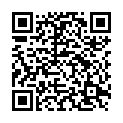|
|
|
| Module code: WIBASc-525-625-Ing8 |
|
|
3V+3U (6 hours per week) |
|
9 |
| Semester: 5 |
| Mandatory course: no |
Language of instruction:
German |
Assessment:
Project work 40%, written exam 60%; at least 8 out of 20 points must be achieved respectively for both
[updated 13.09.2018]
|
WIBASc-525-625-Ing8 (P450-0204) Industrial Engineering, Bachelor, ASPO 01.10.2013
, semester 5, optional course, course inactive since 03.12.2019
|
90 class hours (= 67.5 clock hours) over a 15-week period.
The total student study time is 270 hours (equivalent to 9 ECTS credits).
There are therefore 202.5 hours available for class preparation and follow-up work and exam preparation.
|
Recommended prerequisites (modules):
WIBASc145 Physics
WIBASc155 Materials Engineering
WIBASc235 Engineering Mechanics I
WIBASc245 Manufacturing Engineering
WIBASc335 Engineering Mechanics II
WIBASc345 Design Technology / CAD
[updated 03.12.2019]
|
Recommended as prerequisite for:
|
Module coordinator:
Prof. Dr.-Ing. Dieter Arendes |
Lecturer:
Prof. Dr.-Ing. habil. Andreas Fricke
[updated 03.12.2019]
|
Learning outcomes:
After successfully completing this module students will:
_ be able to analyze and abstract the function of technical products.
_ be familiar with the methodical procedure for developing technical products.
_ be able to design manageable assemblies of technical products in a team and evaluate them under technical and cost aspects.
_ be able to describe the structure, properties and function of frequently used design elements.
_ be able to select and dimension these construction elements according to their respective application.
[updated 13.09.2018]
|
Module content:
1. The technical product and its characteristics
2. The product creation process
3. Development and design -_ the quintessence of product creation
4. Solving (construction) problems
5. Methodology in development and design
6. Springs
7. Screw connections
8. Bearings
9. Keyed joints
10. Axles and shafts
11. Couplings
[updated 13.09.2018]
|
Teaching methods/Media:
Interactive lectures and exercises, team work, lecture notes with exercises, study objects
[updated 13.09.2018]
|
Recommended or required reading:
_ Ehrlenspiel, K.: Integrierte Produktentwicklung. 4., überarbeitete Auflage. München, Wien: Carl Hanser Verlag 2009
_ Pahl, G.; Beitz, W.: Konstruktionslehre. 6. Auflage, Berlin, Heidelberg, New York:
Springer Verlag 2004
_ Wittel, H.; Muhs, D.; Jannasch, D.; Voßčiek, J.: Roloff/Matek - Maschinenelemente. 19., überarbeitete und erweiterte Auflage. Wiesbaden: Vieweg+Teuber Fachverlage 2009
_ Decker, K. H. u.a.: Maschinenelemente; 18. Auflage, Carl Hanser Verlag, 2011
_ Grothe, K.-H.; Feldhusen, J.: Dubbel _ Taschenbuch für den Maschinenbau. Berlin, Heidelberg, New Yorck: Springer-Verlag
_ ISO EU DIN Normen
[updated 13.09.2018]
|

